Live Science
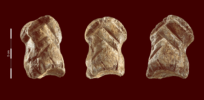
Did Neanderthals create art? Engraved bone raises questions about human ancestor creativity
Examples of artistic expression in the archaeological record that reshape what we know about the cognitive abilities of Neanderthals ...

What do high-altitude Andean communities and deep-sea fish have in common? Genetic mutations that aid survival in low-oxygen environments
Researchers discovered an example of convergent evolution in the Peruvian and Tibetan highlander communities ...

Post-apocalyptic farming? How seaweed could help us avert starvation during a nuclear winter
A nuclear war would plunge our planet into a deep nuclear winter. In the worst-case scenario, a nuclear exchange... could ...

Ancient pairing: Neanderthals and humans first interbred 250,000 years ago, new analysis shows
It was previously believed that Neanderthals and humans first encountered each other around 75,000 years ago ...
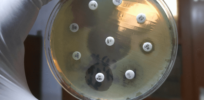
Antibiotic resistance is rising and seems unstoppable. CRISPR-designed molecules might offer an answer
Antibiotics drive bacteria toward drug resistance, so scientists are looking to viruses, CRISPR, and designer molecules for better treatments ...

Why does cilantro taste like soap to some people? Tracking genes that predispose taste for bitter beer, grapefruit and kale
Between 3% and 21% of people, depending on their location in the world, dislike cilantro for its soapiness. But how can ...
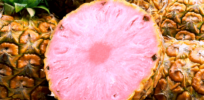
‘Pinkglow’ pineapple: What gives this genetically-modified pink pineapple its distinctive rosy color?
Scientists have engineered a pink pineapple: It's unassuming on the outside but a blushing pink on the inside. The new ...

Challenging the Africa human origin hypothesis: Turkish fossils suggest apes and humans may have shared earlier European ancestry
Human and ape ancestors arose in Europe: A newly described fossil suggests that the ancestor of humans and apes arose ...
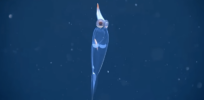
Video: Glass see-through squid with ‘demon-like’ red eyes swims in the deep waters off the coast of Alaska
The see-through cephalopod was spotted by researchers exploring the deep sea surrounding Alaska's Aleutian Islands ...

Why stop at three-parent babies? How many biological parents can organisms have?
Most organisms have two parents, but not all. Could an individual have three parents, or even more? ...

A flash of intense consciousness after breathing stops, but before a person dies? What’s happening?
In their last minutes of life, some people's brains generate a surge of surprisingly organized-looking electrical activity that may reflect ...
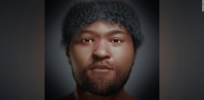
What did ancient Egyptians look like? Here’s a facial approximation
A lifelike facial approximation of a man who lived 30,000 years ago in what is now Egypt may offer clues ...

Squid and human brains: Despite 500 million years of divergent evolution, their complex brain development remains similar
Squid and human brains develop the same way despite diverging 500 million years ago ...

Is violence built into our genes and human nature?
Violence is clearly not a modern phenomenon, but is it an inherent part of being human? Have we evolved to ...
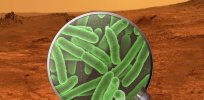
First life forms on Mars could have created a ‘reverse greenhouse effect’ — making the planet inhospitable and leading to their extinction
Ancient microbial life on Mars could have destroyed the planet’s atmosphere through climate change, which ultimately led to its extinction, ...
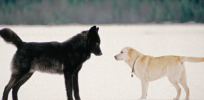
Despite the vast diversity of the size, shape and behavior of dogs, they share a deep evolutionary history
The oldest fossil that scientists agree came from a dog, rather than a wolf, comes from a site in Germany ...
Age of anti-vaxxers: Polio rears its ugly head in the US after nearly a decade with no reported cases
After nearly a decade with no reported polio cases in the U.S., a resident of Rockland County, New York has ...

How did ancient animals evolve to be so giant?
Prehistoric giants used to populate the Earth. These behemoths included mighty dinosaurs, airplane-size pterosaurs, massive crocodiles and snakes, and even ...

Can foods boost your immune system?
It’s easy to fall prey to marketing gimmicks deployed by food brands. After all, it’s comforting to think that there ...

Video and infographic: Most comprehensive family tree ever retraces history of humanity
A new, enormous family tree for all of humanity attempts to summarize how all humans alive today relate both to ...

Did humans leave (or try to leave) Africa in waves? A 1.5-million-year-old vertebrae found in Israel is challenging evolutionary canon
Scientists had debated whether ancient humans dispersed from Africa in a one-time event or in multiple waves. Now, researchers have ...

If humans go extinct, what ‘smart’ animals might evolve to ‘rule the world’?
What if humans suddenly went extinct? What other animals might evolve to have the smarts and skills to create large, ...
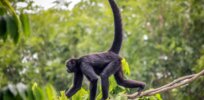
Why don’t humans have tails?
Why did some primates keep their tails, while humans and apes didn't? Tail loss is thought to be part of ...

Evolutionary thinking: What would a world without humans look like?
Humanity's fingerprint can be seen across the planet today, from the towering skyscrapers that define our modern metropolises to the ...

HPV vaccine cuts cervical cancer rate by 87% in UK study
The human papillomavirus (HPV) vaccine reduced cervical cancer cases by 87% among women in the U.K. who received the vaccine ...
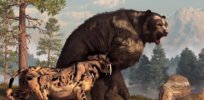
Polar bears are the largest surviving predator in North America. How do they measure up to what used to roam the continent?
North America's largest predatory mammal was probably the massive short-faced bear (Arctodus simus), said Ross MacPhee, senior curator of mammals ...

Lab-grown mini brains grow their own eyes
A group of scientists has grown mini brains that have something their real counterparts do not: a set of eye-like ...
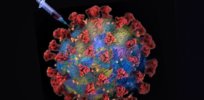
Do we need a new COVID vaccine to fight new and potentially more lethal variants?
The rapid spread of the delta variant of SARS-CoV-2 has put more patients in hospital beds and led to reinstatements ...

